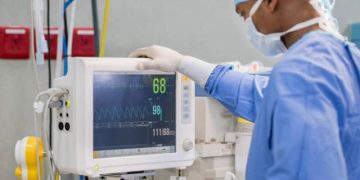WorldStage– Minister of State Petroleum Resources (Gas), Rt. Hon. Ekperikpe Ekpo has said that Nigeria is rolling out concrete measures to accelerate methane-emission reductions and eliminate routine gas flaring.
Speaking at the Sub-Saharan African Roundtable on Methane Emissions held in Abuja on Monday with the theme “Turning Methane Pledges into Action,” Ekpo outlined a suite of measures the government is executing to meet its methane-reduction and energy-transition goals under national and global commitments.
At the center of Nigeria’s strategy is strict enforcement of flare-out deadlines mandated in the Petroleum Industry Act (PIA). He noted that regulators have been directed to intensify compliance monitoring and ensure operators adhere to the timelines set for ending routine gas flaring.
Nigeria is also deploying an expanded array of methane-detection technologies, including satellite surveillance, drones, and handheld sensors, to enhance leak detection and repair initiatives across upstream and midstream facilities.
These tools aim to deliver real-time data, improve accountability, and minimize emissions.
To complement regulatory actions, the minister highlighted new commercial incentives for methane abatement, covering flare-to-power projects, LPG market expansion, and small-scale LNG development.
These frameworks are designed to convert what was previously wasted gas into economic value — supporting industries, powering homes, and creating jobs.
Ekpo noted that Nigeria’s push is not happening in isolation. According to him, the country is strengthening regional cooperation, harmonize standards, and promote best practices among Sub-Saharan African producers.
“We are ready to work with our neighbours to create scalable models that transform methane-related challenges into economic opportunities for the entire continent,” he said.
He said the drive to expand domestic gas use has already enabled over one million households to switch to LPG as their primary cooking fuel—a key milestone for environmental protection and market growth.
The target, he noted, is to reach at least five million households by 2030 in line with the government’s clean energy transition goals.
Ekpo added that meaningful progress will depend on “political will, technological innovation, targeted investments, and long-term partnerships,” stressing that Nigeria remains committed to leading Africa’s transition toward cleaner, gas-driven growth and playing a prominent role in global methane-reduction efforts.







































